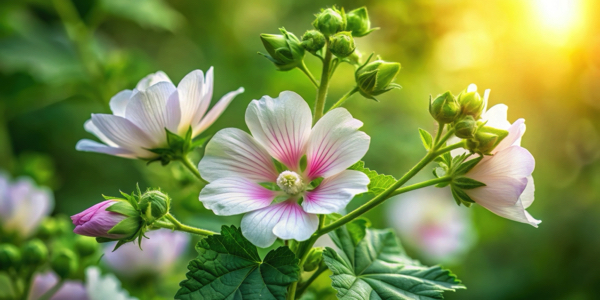
As spring arrives, millions brace for the onslaught of seasonal allergies, with symptoms like sneezing, congestion, and itchy eyes becoming increasingly severe. While conventional medications like antihistamines and nasal sprays are common solutions, many are turning to natural remedies for relief.
Substances such as black cumin seed oil, mullein tincture, marshmallow root tea, liposomal vitamin C, serrapeptase, and quercetin offer powerful benefits—improving mucous membrane function, reducing inflammation, and regulating immune responses. This article explores how these natural alternatives can help manage allergy symptoms effectively.
Natural Remedies for Allergy Relief
There are many natural ways to support your body against allergies. Here are a few of the best ones:
1. Black Cumin Seed Oil
Black cumin seed oil (Nigella sativa) has been used for centuries in traditional medicine for its potent anti-inflammatory and immune-modulating properties. Studies suggest that it helps stabilize mast cells, reducing histamine release—the primary culprit behind allergy symptoms. Additionally, it supports mucous membrane health, preventing excessive mucus production and congestion.
2. Mullein Tincture
Mullein (Verbascum thapsus) is renowned for its ability to soothe respiratory irritation and dry up excess mucus. Its expectorant properties help clear congestion, while its anti-inflammatory effects reduce throat and sinus irritation. Mullein tincture can be particularly helpful for those with post-nasal drip or persistent coughs caused by allergies.
3. Marshmallow Root Tea
Marshmallow root (Althaea officinalis) contains mucilage, a gel-like substance that coats and soothes irritated mucous membranes in the throat and nasal passages. This helps alleviate dryness and inflammation while promoting healing. Drinking marshmallow root tea can provide relief from scratchy throats and persistent coughing.
4. Liposomal or Intravaneous Vitamin C
Vitamin C is a powerful antioxidant that supports immune function and reduces histamine levels. Liposomal vitamin C, due to its enhanced absorption, is especially effective in combating oxidative stress caused by allergic reactions. It also strengthens the body’s natural defenses, helping to prevent excessive immune responses to pollen. Intravaneous vitamin C treatments have shown to reduce allergy symptoms.
5. Serrapeptase
Serrapeptase, an enzyme derived from silkworms, helps break down excess mucus and unwanted proteins in the body. It reduces inflammation in the sinuses and respiratory tract, making it easier to breathe. Additionally, serrapeptase may help clear biofilm—a protective layer that can trap allergens and bacteria in the nasal passages.
6. Quercetin
Quercetin, a flavonoid found in foods like onions and apples, acts as a natural antihistamine by stabilizing mast cells and preventing excessive histamine release. It also reduces inflammation in the airways and supports immune regulation. Many allergy sufferers find quercetin supplements particularly helpful when taken before pollen season begins.
Holistic strategies improve quality of life
With allergy seasons growing longer and more intense, finding effective relief is crucial. While conventional treatments remain valuable, natural remedies like black cumin seed oil, mullein tincture, marshmallow root tea, liposomal vitamin C, serrapeptase, and quercetin offer a holistic approach to managing symptoms. These substances work by improving mucous membrane function, drying up excess mucus, reducing inflammation, and regulating immune responses. As highlighted in recent reports, proactive measures—such as starting treatments early and minimizing pollen exposure—are key to staying ahead of allergies. By incorporating these natural solutions, allergy sufferers can find lasting relief and enjoy the spring season with greater ease.
According to recent allergy forecasts, rising pollen levels are making seasonal allergies more severe and prolonged. To make matters worse, aluminum-based vaccines have triggered allergic and autoimmune type reactions in individuals, making children more susceptible to chronic sinusitis, for example. Experts recommend early intervention to mitigate symptoms, whether through antihistamine medications or natural remedies.
As Dr. Payel Gupta notes, “Because spring allergies can start as early as February, and weed pollen allergies can last as late as November, we're really not having much respite from allergies.” This underscores the importance of proactive allergy management—whether through conventional treatments or natural alternatives like those discussed above. By taking steps to strengthen mucous membranes, reduce inflammation, and regulate immune function, individuals can better navigate the challenges of allergy season.
Sources include:
Please contact us for more information.













